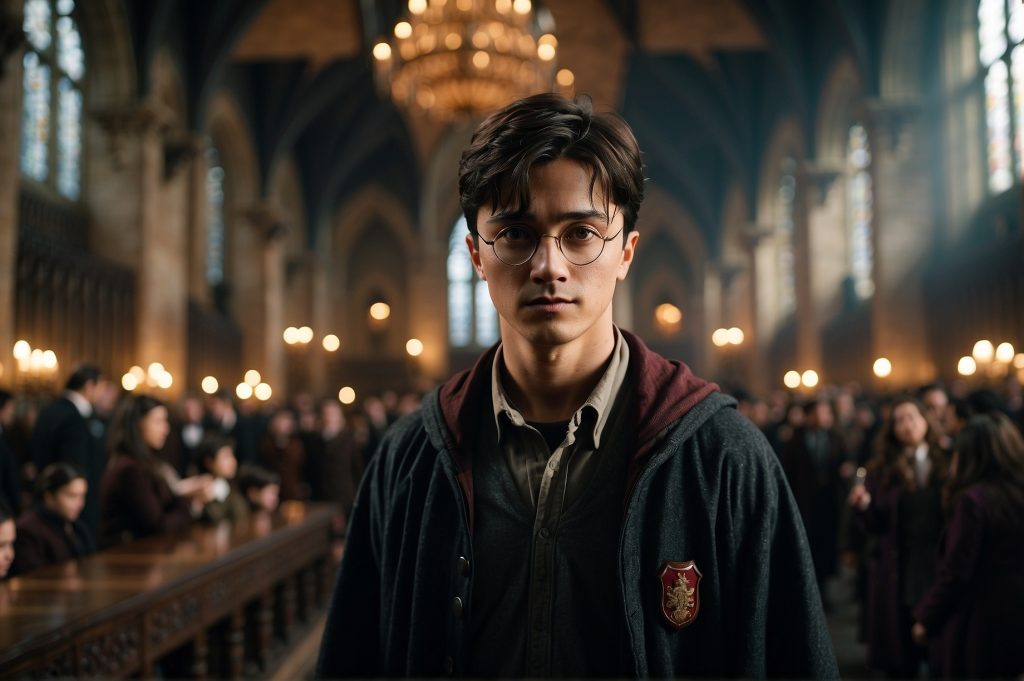
Unpacking the Prophecy: Fate, Free Will, and the Power of Choice in Harry Potter
The magical world of Harry Potter has enchanted readers and viewers for decades, offering a rich tapestry of themes and lessons that go beyond the surface of spells and mythical creatures. One of the most profound elements of J.K. Rowling’s series is the exploration of fate, free will, and the power of choice. Through the intricate storyline and the deep development of characters, Rowling masterfully weaves a narrative that challenges our understanding of destiny and autonomy. Let’s delve into these themes and uncover how they shape the world of Harry Potter.
The Prophecy: A Prelude to Destiny
Understanding the Prophecy
The prophecy made by Professor Trelawney to Dumbledore plays a pivotal role in the series, setting the stage for the epic struggle between Harry Potter and Voldemort. This prophecy states that “neither can live while the other survives,” implying a predestined conflict. From the moment we learn about the prophecy, questions of fate and choice come to the forefront. Is Harry merely a pawn of destiny, or does he have the power to shape his own future?
Interpreting the Prophecy
Voldemort’s decision to act on the prophecy is crucial. By choosing to target Harry, Voldemort essentially fulfills the prophecy himself. This act raises the question: is the prophecy a definitive fate, or does it only come true because Voldemort believes in it? The interpretation of the prophecy, therefore, plays a significant role in determining its impact on the characters’ lives.
Harry’s Journey: Navigating Fate and Free Will
Harry’s Early Life
From living under the stairs at the Dursleys’ to discovering his true heritage, Harry’s life seems to be a series of predestined events. However, each step of his journey is marked by critical choices that define his path. Whether it’s choosing to befriend Ron and Hermione or deciding to face his fears, Harry consistently exercises his free will.
Defying Expectations
Throughout the series, Harry faces numerous situations where he could easily succumb to the idea of a predetermined fate. Instead, he continually makes choices that defy expectations. His decision to trust Dumbledore, his choice to pursue the Horcruxes, and his ultimate sacrifice in the Forbidden Forest are all acts of free will. These choices highlight Harry’s agency and his belief in the power of choice over fate.
The Role of Free Will: Other Key Characters
Hermione Granger
Hermione’s character is a testament to the importance of choice and hard work. Despite being born to Muggle parents, she chooses to excel in the wizarding world. Her dedication to her studies and her unwavering loyalty to her friends are driven by her decisions, not by any predetermined destiny. Hermione’s actions consistently reinforce the theme of free will.
Severus Snape
Snape’s story is one of the most complex in the series. His choices, driven by love and remorse, ultimately define his character. Snape’s decision to protect Harry, despite his own dark past, is a powerful example of how free will can lead to redemption. His actions remind us that even in a world filled with prophecies, individual choices carry immense weight.
The Illusion of Choice: Examining Voldemort
Voldemort’s Belief in Destiny
Voldemort’s obsession with the prophecy is his downfall. His belief that he is destined to kill Harry blinds him to the power of choice. Voldemort’s fear of death and his quest for immortality are driven by his desire to control fate. However, in his attempt to evade destiny, he inadvertently seals his own fate.
The Power of Fear
Voldemort’s choices are driven by fear—fear of death, fear of losing power, and fear of the unknown. This fear leads him to make decisions that ultimately bring about his demise. By contrasting Voldemort’s fear-driven choices with Harry’s courageous ones, Rowling emphasizes the power of choice in shaping one’s destiny.
The Impact of Choice: Major Turning Points
The Sorting Hat
The Sorting Hat’s decision to place Harry in Gryffindor instead of Slytherin is a significant moment in the series. Although the Hat senses Harry’s potential for greatness in Slytherin, it honors Harry’s choice to be in Gryffindor. This moment underscores the theme that our choices, more than our abilities, define who we are.
Dumbledore’s Guidance
Dumbledore often emphasizes the importance of choices over abilities. His guidance to Harry is filled with reminders that it is our choices that show what we truly are. Dumbledore’s own life, marked by his decision to pursue the greater good despite personal loss, reinforces this message.
The Power of Sacrifice: Choosing for Others
Lily Potter’s Sacrifice
Lily Potter’s choice to sacrifice herself for Harry is a defining moment in the series. Her selfless act of love not only protects Harry but also sets the stage for his ultimate victory over Voldemort. Lily’s sacrifice highlights the power of love and the profound impact of selfless choices.
Harry’s Final Choice
Harry’s decision to walk into the Forbidden Forest, willing to sacrifice himself, is the culmination of his journey. This choice is a testament to his courage and his belief in the greater good. By choosing to face death, Harry ultimately defeats Voldemort and saves the wizarding world. His sacrifice exemplifies the power of choice and the triumph of free will over fate.
Conclusion: The Interplay of Fate and Free Will
In the world of Harry Potter, the interplay between fate and free will is a central theme. While prophecies and destinies set the stage, it is the characters’ choices that drive the narrative forward. Harry’s journey, marked by critical decisions and acts of bravery, showcases the power of free will. Through the stories of Harry, Hermione, Snape, and even Voldemort, J.K. Rowling illustrates that while fate may present challenges, it is our choices that define our destinies.
Disclaimer
The views and interpretations expressed in this article are those of the author and do not necessarily reflect the official stance of J.K. Rowling or the Harry Potter franchise. This article is intended for educational and entertainment purposes only.